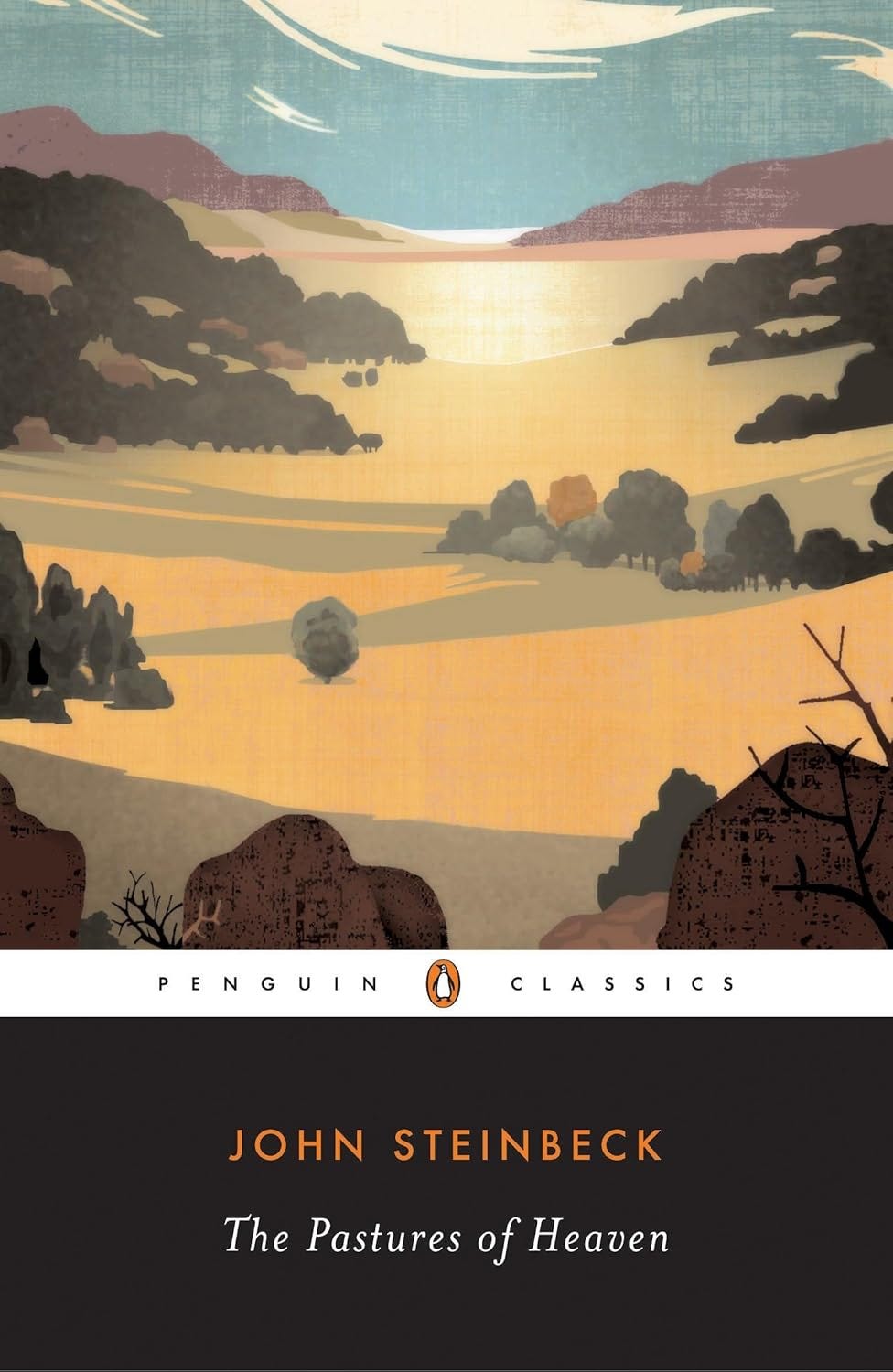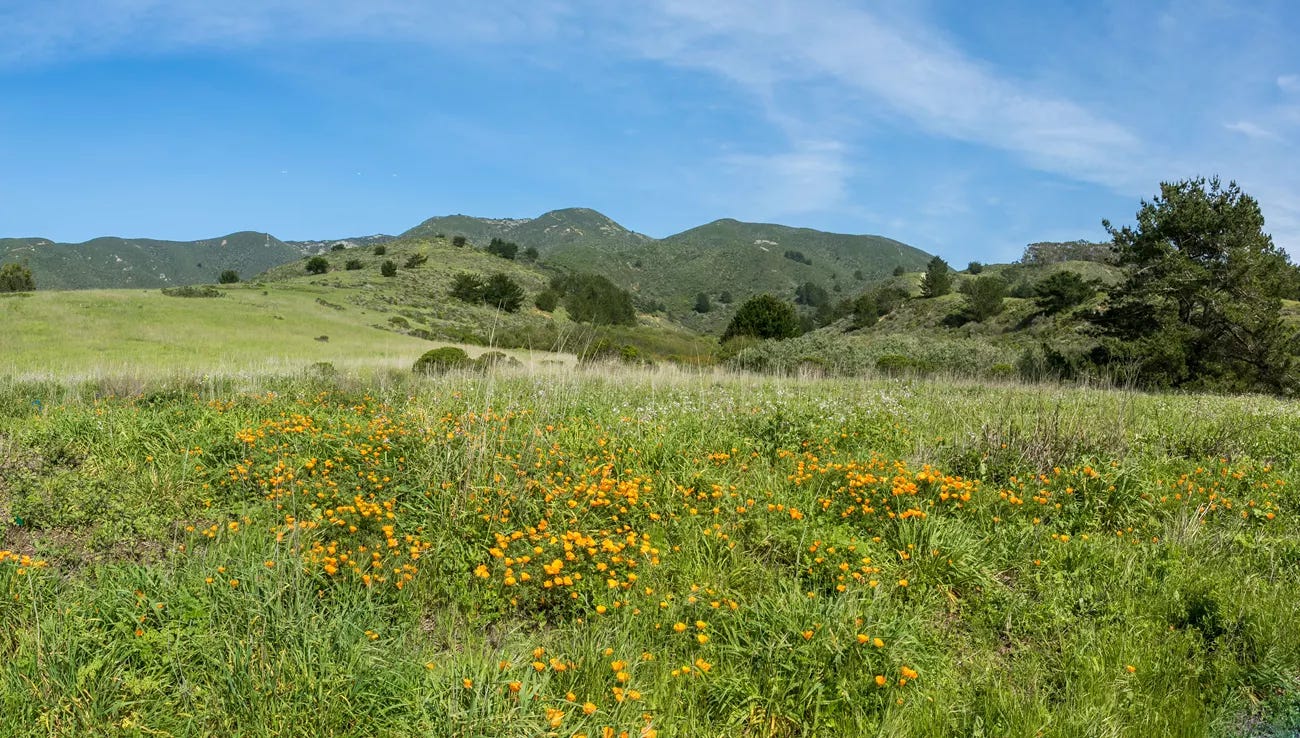"The Pastures of Heaven" by John Steinbeck
A collection of short stories that take place in an idyllic California valley.
John Steinbeck is on my literary Mt. Rushmore (right next to Wallace Stegner, Cormac McCarthy, and Gabriel García Márquez). The Grapes of Wrath and East of Eden are two of the greatest works of literature I’ve ever read, to say nothing of his shorter fiction. He was awarded the Nobel Prize in 1962 with good reason. But I had never heard of The Pastures of Heaven before stumbling upon it, and had no idea Steinbeck wrote short stories. And this book is a gem.
The book begins with the fictional discovery of a fertile, beautiful California valley in the 1700s. After a group of Native Americans reject their Christianity and flee, a group of Spanish soldiers hunts them down to return them to the fold – and to their enslavement. On the return, a Spanish corporal is tracking a deer when he stumbles upon a verdant valley and is so taken with it, he names it Las Pasturas del Cielo.
The chapters that follow jump to the 1920s and follow the families who have made and make their home in the Pastures of Heaven. Because it’s Steinbeck, every story lands like a beautiful gut punch. There are luckless men, disappointed wives, liars and charlatans, an orphan found in the wilderness who violently lashes out at anyone who destroys what he creates, sisters who keep themselves solvent through tamales and prostitution, and many more characters to root for and cringe with.
Las Pasturas del Cielo is based on the actual valley of Corral de Tierra near Steinbeck’s hometown. Today it’s a collection of ranch-style homes, a golf course, and a country club – exactly what Steinbeck’s characters predict it will eventually become.
The Pastures of Heaven is Steinbeck’s second novel, written in 1932, five years before Of Mice and Men, seven years before The Grapes of Wrath, and 20 years before East of Eden. But it doesn’t feel like an earlier work. It is pure Steinbeck.
READ IT IF: You want beautiful short stories and are a fan of Steinbeck.





